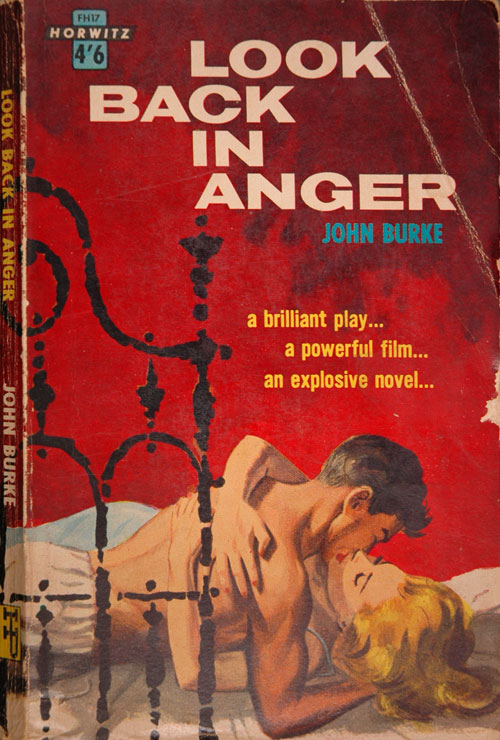

Many of the initial reviews of Osborne’s play were negative, but after Tynan announced his love for what Osborne was doing, people’s interest was piqued. Tynan’s praise of the play transformed its fortunes. It seems that Look Back in Anger arrived like a hand grenade in British theatres, blowing apart old attitudes: as Kenneth Tynan observed upon seeing the play, it was ‘a minor miracle’ to see ‘qualities one had despaired of ever seeing on the stage’.

It might also be analysed as significant, in this connection, that Jimmy Porter runs a sweet stall – more child’s play. Her and Jimmy’s fondness for playing ‘bears and squirrels’ with their cuddly toys suggests a desire to retreat into a world of child’s play, to insulate one in a safe, innocent world that is free from the gritty realities of post-war Britain, but also from the adult pressures (and adult knowledge) of the class system, the need to earn a living, the sense of time slipping by unused (to borrow a Larkinesque turn of phrase) as the characters drift ever more quickly and inexorably towards middle age. In a telling remark, Alison chides Jimmy for being like a child. Or perhaps the key to understanding Look Back in Anger is not in the ‘angry’ or ‘man’ part, but the ‘young’. Men and women, bears and squirrels, were both doomed. And as Stephen Unwin and Carole Woddis note in their fascinating resource A Pocket Guide to Twentieth-Century Drama, there is a sense of shared despair between Jimmy and Alison at the end of the play.

For one, Osborne’s opening stage directions acknowledge that to some people, Jimmy Porter is simply ‘a loudmouth’. Thankfully times have changed since then, but where does that leave us when analysing the significance of Look Back in Anger? Was it a play merely ‘of its time’ and is now more valuable as a historical curiosity than as a timeless masterpiece of the theatre? Look Back in Anger is as likely to remind us of the other side to the 1950s, if anything – reminding us that post-war life was pretty wretched for many women in the years before the arrival of the permissive society in the late 1960s, and that the ‘kitchen sink’ and the ironing board were seen as their rightful place by many men (and many women, too, we daresay).


 0 kommentar(er)
0 kommentar(er)
